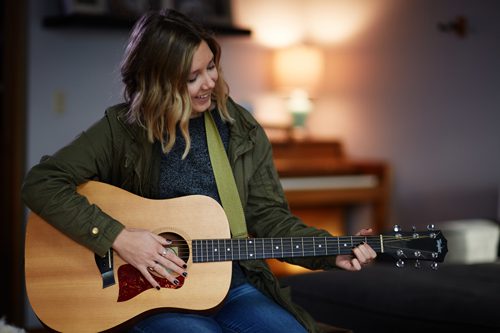
Creative Arts Therapy
When creative arts are used as a form of therapy, they are known as expressive therapies. They differ from the traditional forms of creative art because they do not emphasize the final product. Instead, the emphasis is placed on the process of creation itself. The “art” in creative arts therapy can take many forms, including the following:
- Music
- Painting/drawing/sculpting
- Dance and/or movement
- Drama
- Writing (including poetry, fiction, journaling, and bibliotherapy)
Expressive therapies allow people to express their emotions without words. When people have help processing their complex feelings, they move more quickly toward growth and healing. As such, creative arts therapy is especially beneficial for those in recovery who have experienced loss or trauma.
Addiction And Creativity
Addiction stifles creativity, which is perhaps why creativity is often an important part of recovering from the disease. Many people who are addicted to alcohol or drugs also suffer from alexithymia, meaning they are unable to identify and describe emotions they–or others–experience. Since they lack emotional awareness, they don’t understand how others feel or what they themselves are feeling. They are also unable to put their feelings into words. For these people and many others in recovery, creative arts therapy allows them a safer way to express their difficult memories, feelings, and thoughts without having to use words.
The Healing Benefits of Creative Arts Therapy in Recovery
With the guidance of a professional therapist, creative arts therapies can allow the person in recovery to eventually be able to talk about their pain instead of escaping from it by using alcohol or drugs. Sometimes an individual may even see their own pain through another person’s creative expression, providing a chance for vicarious healing.
Creative arts therapies help people learn to regulate their emotions as well. People with a substance use disorder often have a great deal of shame and guilt that can easily lead to feelings of failure or hopelessness. Creative therapies can help them cope with and process their feelings, often helping them to avoid a relapse. Listening to music, for example, can reduce stress, foster a healing environment, and reduce negative emotional states.
Creativity is also good for the mind. Artists often describe the feeling of getting lost in their work. Studies show that changes in the brain when a person is engaged in a creative process allow them to have a purer or uninterrupted focus on their activity. Researchers call this focus “flow,” a state of being completely involved in the creative activity strictly for its own sake.
Creative Arts and Brain Chemistry
In addition, a study released by the United States National Library of Medicine shows that creating art stimulates the release of the feel-good neurotransmitter dopamine, which is responsible for the feelings of satisfaction and pleasure. As part of the brain’s reward system, dopamine boosts feelings of motivation, mood, and attention while helping to regulate learning, movement, and emotional responses.
Most people in recovery have been so affected by their disease that they have lost the part of them that was once happy and carefree. Creativity can help them reconnect with that lighthearted, fun part of themselves. Creative activities that promote playfulness, such as dancing, writing a story, or making up a new recipe help people reconnect with their inner selves and thus feel more in control of their environment.
Help is Available
If you or a person you know is suffering from an alcohol or drug addiction, the trained professionals at English Mountain Recovery in Tennessee can answer your questions. We use a combination of addiction therapies, including creative arts therapy, to guide you along the path to living a healthy and sober life.
 To learn more about programs offered at English Mountain Recovery, addiction treatment center in Tennessee, call and speak with someone today at (877) 615-8569. We are ready to help you or your loved one recover.
To learn more about programs offered at English Mountain Recovery, addiction treatment center in Tennessee, call and speak with someone today at (877) 615-8569. We are ready to help you or your loved one recover.


